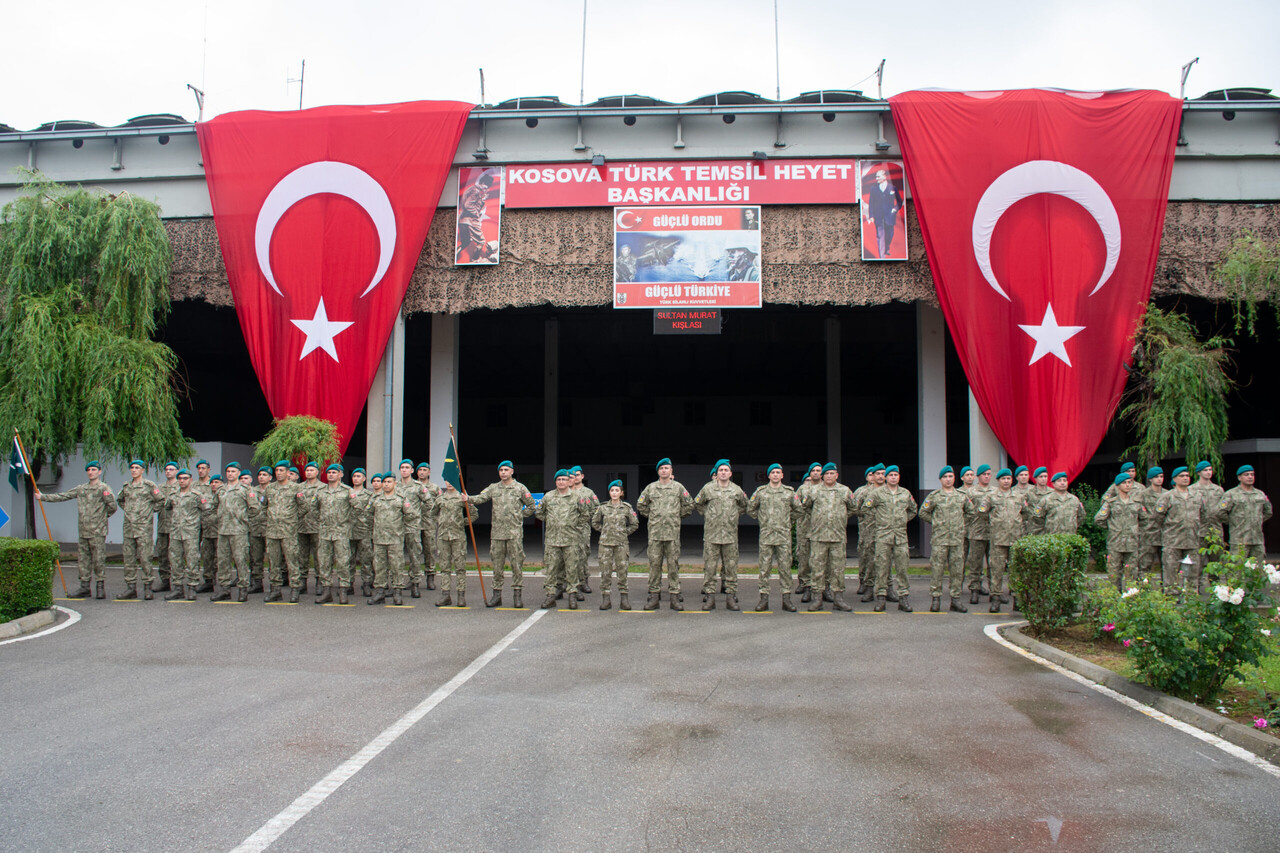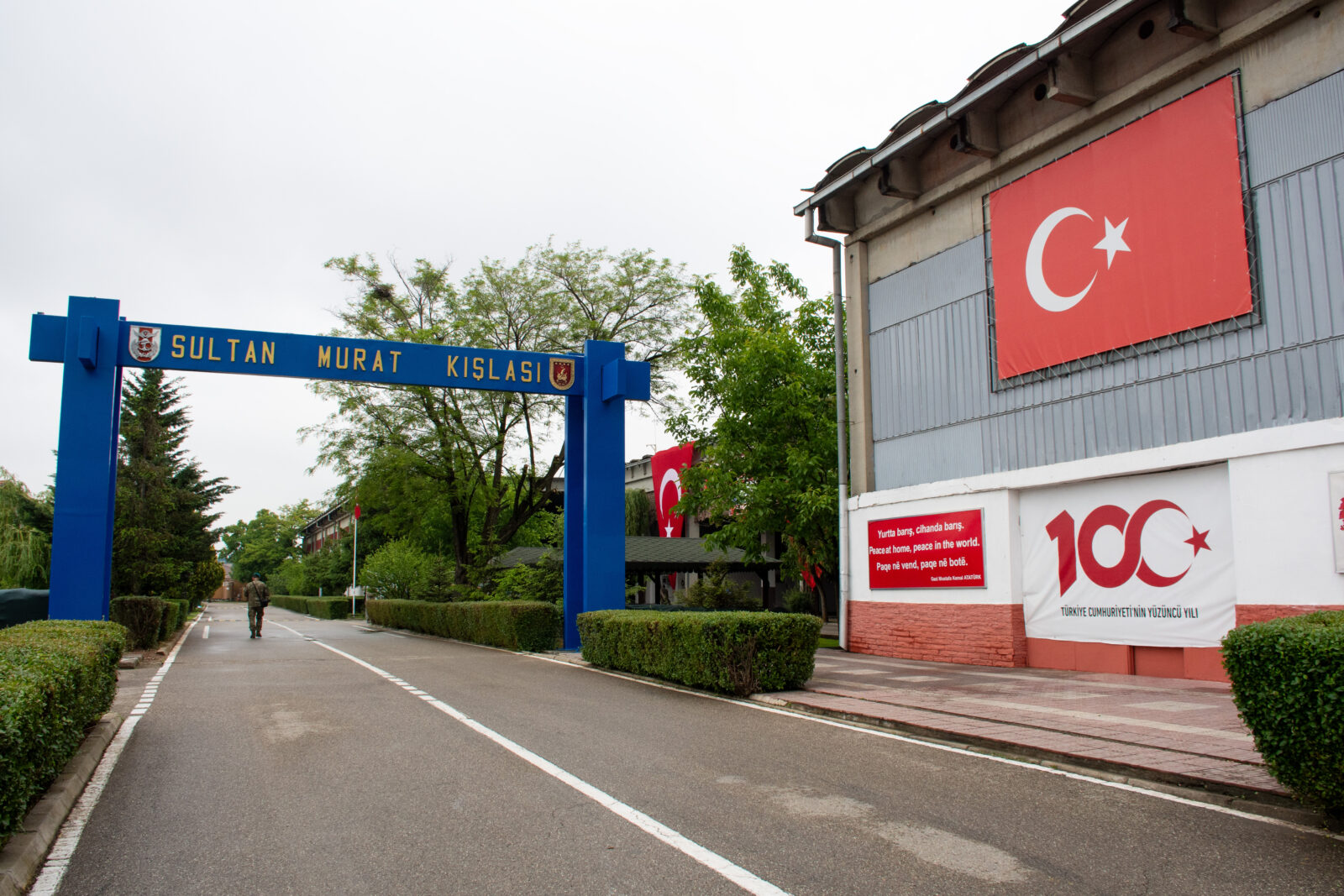Arrival of Turkish soldiers in Kosovo: 25 years of historic enthusiasm, unity
 Turkish soldiers, having arrived in Kosovo on July 4, 1999 to serve as part of NATO's Peacekeeping Force (KFOR), contribute to the country's security and development in various fields for 25 years, Prizren, Kosovo, July 4, 2024. (AA Photo)
Turkish soldiers, having arrived in Kosovo on July 4, 1999 to serve as part of NATO's Peacekeeping Force (KFOR), contribute to the country's security and development in various fields for 25 years, Prizren, Kosovo, July 4, 2024. (AA Photo)
On July 4, 1999, Turkish soldiers deployed to Kosovo as part of NATO’s Peacekeeping Force (KFOR) have been contributing to the country’s security and development in various fields for 25 years.
Turkish soldiers have been supporting all communities in Kosovo without discrimination in areas such as health, education, culture, arts and infrastructure.
Arrival of Turkish soldiers in Kosovo
NATO launched a ground operation in Kosovo on June 12, 1999, following a 78-day air campaign because the Federal Republic of Yugoslavia, under the administration of Slobodan Milosevic, failed to end the oppression and massacres of Albanians and other communities in Kosovo.
Approximately 50,000 soldiers from various countries served under KFOR, ensuring the complete withdrawal of Serbian forces from Kosovo.
The Kosovo Turkish Battalion Task Force, formed under the 28th Mechanized Infantry Brigade Command to contribute to KFOR, began preparations for deployment in June 1999.
Turkish soldiers began their deployment to Kosovo by land, sea, air, and rail on July 1, 1999. The units arriving by land reached the southern city of Prizren on July 4, 1999.
The people of Prizren welcomed the Turkish soldiers, who arrived as a “Peace Force” after approximately 87 years since the Ottoman Empire left the region, with festive enthusiasm. Turkish soldiers were stationed at the Sultan Murat Barracks in Prizren, where they continued to serve.

Unprecedented enthusiasm
Fidan Brina Jilta, a Member of Parliament for the Democratic Turkish Party of Kosovo (KDTP), says that everyone in the city gathered at Shadervan Square to welcome the Turkish soldiers.
Brina Jilta, states that she had never seen such an enthusiastic crowd in her life.
When the Turkish soldiers arrived, they were welcomed with such enthusiasm that the Serbian press headlined, ‘Where were these (Turkish) flags hidden during the war?’
Fidan Brina Jilta, member of KDTP
Brina Jilta shared her memories of the Turkish soldiers’ arrival in the country. She said that her grandmother, then 86, enthusiastically wanted to greet the Turkish soldiers when she heard that they arrived, adding: “My grandmother had been blind for 25 years, and that’s how I can describe that enthusiasm. A blind woman, even if she was in a car, wanted to go to the square and welcome the Turkish soldiers. Will such enthusiasm ever be experienced again, I don’t know. The presence of our Turkish soldiers in Kosovo is very important not only for the Turkish community but for the whole of Kosovo.”
Jilta, who was a teacher at the time, emphasized that they turned to Turkish soldiers for help with every difficulty they encountered and that the soldiers assisted the people of Kosovo in all matters.
‘Turkish soldiers helped everyone’
Nafis Lokvica, who documented the entry of Turkish soldiers into Kosovo with photos and videos, said that Turkish soldiers helped everyone without distinction during their years of service in the country.
Describing the day the Turkish soldiers arrived in Prizren, Lokvica said,
Crowds flocked to this square. Men, women, children, Turks, Albanians, Bosniaks all climbed onto the tanks of the Turkish soldiers. Turkish flags were displayed. Folk songs and dances were performed with drums and zurnas. An incredible level of enthusiasm was experienced.
Nafis Lokvica
‘I don’t want to forget that day’
Lokvica, who still cannot understand how the people learned about Turkish soldiers during a time when electricity and telephone lines were not working, said: “I will never forget that day; I don’t want to forget it, and it’s impossible to forget.”
Following a United Nations Security Council decision to ensure security and stability, KFOR, which began its mission in Kosovo on June 12, 1999, includes over 4,500 international military personnel from 28 countries, including 23 NATO members and 5 partner countries.
Türkiye assumed command of KFOR for the first time on October 10, 2023, for a one-year term.
Road to independence
During the Kosovo War of 1998-1999, over 10,000 Kosovars, mostly Albanians were killed, and more than one million Kosovars from various ethnic groups were forced to leave their homes.
Kosovo declared its unilateral independence from Serbia on February 17, 2008. However, Serbia still considers Kosovo as its territory.
Kosovo and Serbia are trying to find a common path towards normalization of relations and mutual recognition within the framework of the EU-facilitated Belgrade-Pristina Dialogue Process, which began in 2011. Recent tensions in northern Kosovo have caused a stalemate in the process.



